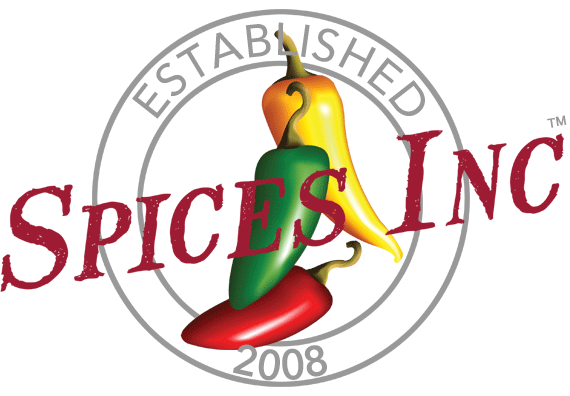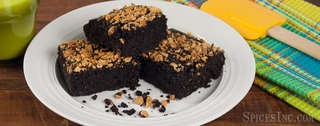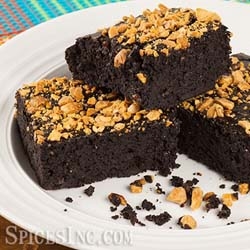Black Onyx Cocoa Powder
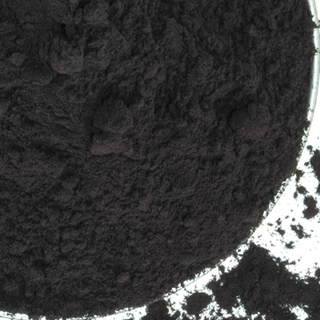
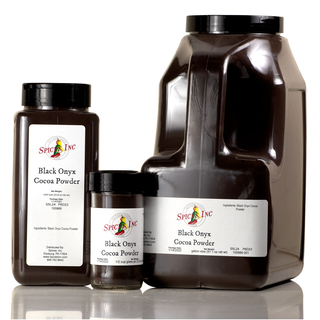


Black Onyx Cocoa Powder
Black Onyx Cocoa Powder is also called black onyx cocoa, onyx cocoa powder, black velvet cocoa powder, or black cocoa powder.
Black Onyx Cocoa Powder is created by being washed in an alkaline solution. Normally, this process, called “Dutching”, is ended when the acids in cocoa are neutralized and the pH of the product is 7. Black Onyx Cocoa Powder is left to wash in alkaline even longer, to a pH of 8. Super-alkalized cocoa powder has a lower fat content than other cocoas. It is milder, with mellower edges, has no acidity so it won’t rise on its own, and is dark brown, verging on black.
Black Onyx Cocoa Powder is popular with:
- independent spice shops;
- seasoning companies;
- manufacturers of bagels and sauces;
- food trucks;
- coffee shops;
- American restaurants;
- breweries; and
- bakeries
Flavor Profile
Black Onyx Cocoa Powder has a soft, rounded chocolate flavor and a vaguely earthy smell that’s spiked with the fragrance of bitter chocolate.
How To Use
Black Onyx Cocoa Powder is an alkaline so if you’re using this powder for an item that needs leavening, like cake, it needs an acidic base to create rise. You can mix this in with natural cocoa powder, which is acidic, and then use baking soda for rise. Or you can use all Black Onyx Cocoa Powder and mix it with baking powder, which contains both a base and an alkaline and creates its own rise. If you’re making something that requires no leavening, like cookies, frostings, puddings, or in savory applications, then you can use Black Onyx Cocoa Powder on a 1:1 ratio with your usual cocoa powder.
The Dutching process removes residual fats from Black Onyx Cocoa Powder, so it can create a dry product if you don’t counter that by adding something with fat; try butter, shortening, sour cream, or yogurt. It’s also great to use as a coloring agent, so if you need black chocolate icing, replace some of the food dye with Black Onyx Cocoa Powder and let it develop its color for a few hours.
Mix Black Onyx Cocoa Powder with sugar and milk for a deep, dark hot chocolate. Add rich contrast by dusting over a bowl of fruit, or roll it in frozen bananas. Mix into peanut butter smoothies, in a black velvet cake, or to Black Bean Brownies.
Black Onyx Cocoa Powder also can be added to savory dishes. Mix with cinnamon and cumin for a rub for ribs and pork, or stir it into chili. Use it to add deep chocolate flavor to mole, or char some mild peppers and top with a pesto made from almonds, parsley, olive oil, and chocolate. Toss pumpkin seeds with Black Onyx Cocoa Powder, salt, and pepper, and roast. Mix with espresso powder for a super-rich steak rub.
| Also Called | Black onyx cocoa, onyx cocoa powder, black velvet cocoa powder, or black cocoa powder |
| Ingredients | black onyx cocoa |
| Flavor Profile | Soft, rounded chocolate flavor, earthy smell, highlights of bitter chocolate |
| Recommended Uses | Desserts, hot chocolate, chili, moles, rubs, dyes |
| Cuisine | Global |
| How To Store | Airtight container in a cool, dark place |
| Shelf Life | 6-12 months |
| Country of Origin | USA |
Nutrition Facts
Serving Size1 tsp
Amount Per Serving
Calories6
% Daily Value*
Total Fat0g1%
Saturated Fat0g1%
Trans Fat0g
Polyunsaturated Fat0g
Monounsaturated Fat0g
Cholesterol0mg0%
Sodium55.5mg3%
Total Carbohydrate1.3g0%
Dietary Fiber0.9g4%
Total Sugars0.0g
Added Sugars0g0%
Sugar Alcohol0.0g
Protein0.6g1%
Vitamin D0mcg0%
Calcium7mg1%
Iron2mg10%
Potassium0mg0%
*The % Daily Value (DV) tells you how much a nutrient in a serving of food contributes to a daily diet. 2,000 calories a day is used for general nutrition advice. These values were calculated and therefore are approximate. For more accuracy, testing is advised.
